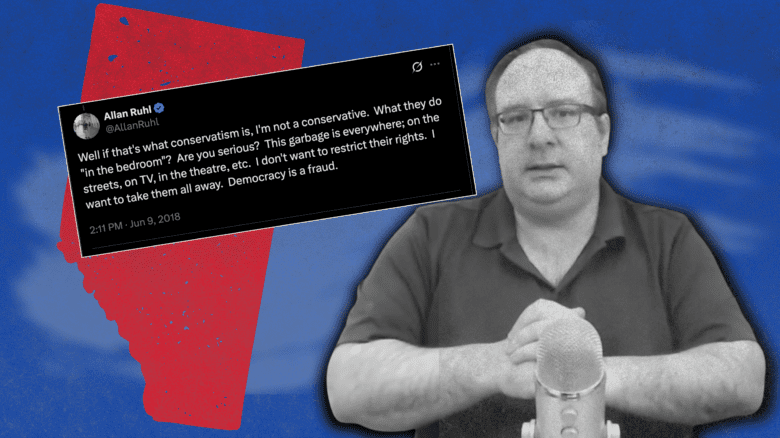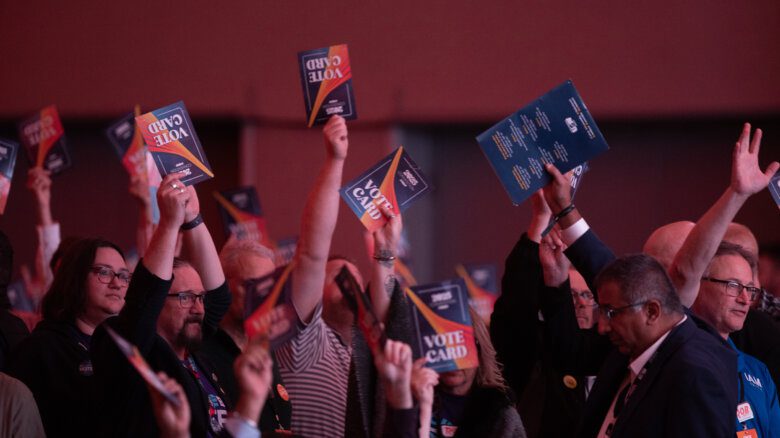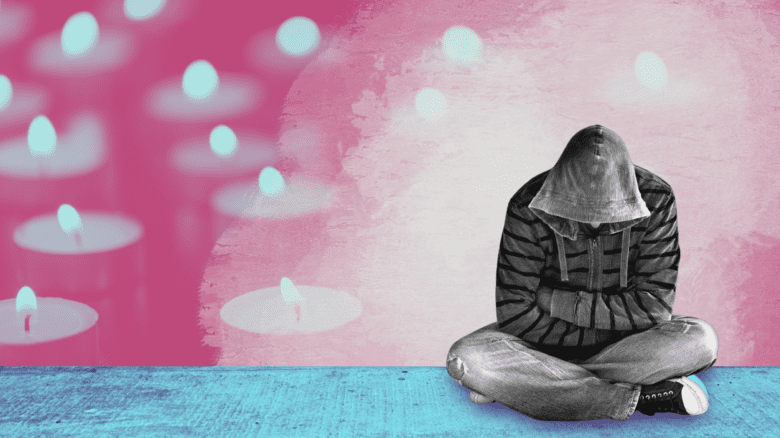A queer man is turned away from a refugee claim because the term for his same-sex partner in his native language translates to “girlfriend”; a bisexual person loses their refugee claim because their understanding of bisexuality differs from Western definitions; a queer person seeking refugee status is asked to share his Grindr profile to verify his sexuality. Around the world, LGBTQ2S+ people face violence, discrimination and encarceration because of their sexual orientation or gender identity, and for many, Canada is a highly sought-after safe haven. But for those seeking refuge from a country with anti-LGBTQ2S+ legislation or powers, coming to Canada isn’t so simple.
The Immigration and Refugee Board (IRB) is trying to change that. In late December 2021, the IRB updated its guidelines for assessing refugee claimants whose lives are threatened because of their sexual orientation, gender identity or expression. This update comes just a few years after the initial guidelines were introduced in 2017. That in itself is a meaningful step forward—particularly after years of complaints that refugee claims were being denied because adjudicators on the board questioned the veracity of claimants’ sexuality or gender identity, or because they felt that claimants could “pass” and live safely in their home country.
But are the new guidelines enough?
Janet Dench, executive director of the Canadian Council of Refugees, points out that guidelines often aren’t updated at all, so it’s noteworthy that the IRB did so, and so quickly after they were first introduced.
But, Dench adds, institutional understandings of queerness and queer life remain rooted in antiquated ideas. “Despite the guidelines, there continued to be a lot of complaints about stereotypes, offensive language used and also the whole Western framework, the sense that we know what gays do,” she says. “If you’re here in Canada, you would presumably show your gayness by going down to the Gay Village and taking the first opportunity to do whatever we associate with gay life.”
“A big challenge is not necessarily stereotyping, but an insensitivity towards the diversity of different sexual and gender identities.”
Based on the implementation plan for the updated guidelines, it appears the IRB is taking this criticism seriously. All 11 recommendations for updating the guidelines were adopted, and the IRB is in the process of updating terminology and definitions.
In the past, the IRB has struggled to determine the veracity of someone’s claims that they are being persecuted based on their sexual orientation, mainly because not everyone defines themselves using the Western concepts common in Canada. “A big challenge is not necessarily stereotyping, but just an insensitivity towards the diversity of different sexual and gender identities,” says Nicholas Hersh, an immigration and refugee lawyer at Community Legal Services of Ottawa, who has provided training on LGBTQ2S+ issues to IRB members.
Hersh cites an example of clients who say they are bisexual: some take that to mean that they are attracted to people of both genders, while other clients mean that, at one point in their lives, they were in a relationship with someone of another gender but today are only attracted to people of the same gender.
“What I’ve been arguing with the board and in training I do with them, is that both of those interpretations are valid,” Hersh says. “Even if people espouse one of the letters in the acronym, their understanding of those terms may be different from ours.”
Hersh cites a case from a claimant from Nigeria, whose refugee claim was denied because the IRB did not understand that in parts of that country, they use different terms to describe their partner’s gender, language, socio-economic status and education. A male-identified partner, for example, may be referred to as a “girlfriend” in English because it’s the closest equivalent to the word used in the claimant’s native language.
“The unfortunate challenge in refugee law is you have to tell a story,” Hersh says. “Even if there are procedural accommodations that can be made, even these guidelines, as great as they are, raise the unique challenges for claimants in articulating their stories. You’re dealing with someone who has these deeply private, embedded feelings, who may have never felt safe or comfortable enough to share them before, even after arriving in Canada.”
Another problem that the IRB plans to address is the kind of terminology used by interpreters during refugee determination hearings. There, too, can be times when the interpretation staff may not be aware that terms they are using are actually derogatory.
“We heard from a lawyer who speaks Mandarin, and if she’s in a hearing with a Mandarin-speaker, she might be able to catch that the interpreter is using language that is offensive or inappropriate, because the whole concepts are complicated, and the interpreter— even if they’re not homophobic or transphobic—may not have a readily available equivalent for terms that might be used, [not to mention] the cultural differences,” Dench says. “If you don’t speak the language, how are you going to know, if you’re the board member or the lawyer?”
“You’re dealing with someone who has deeply private, embedded feelings, who may have never felt safe enough to share them before.”
In spite of the new guidelines, challenges remain. Additional training for IRB members, who are quasi-judicial officers determining refugee cases, is necessary; members continue to ask inappropriate questions about the sex lives of claimants, prompting further complaints. Hersh says that he has heard of IRB members in Toronto who will ask claimants to show their Tinder and Grindr profiles, justifying it as a means of verification of their sexual orientation.
“Even if the questions are not sexualized, the board members are asking for evidence that can be highly sexualized in nature,” Hersh says. “It’s a deeply insensitive way of adjudicating a case.”
Sean Rehaag, a professor at Osgoode Hall at York University, has been tracking IRB decision-makers and says that there are significant differences in the rates at which some members accept claims. Rehaag says that while the IRB has made a real effort to improve itself in the area of LGBTQ2S+ claims, and that those claims are accepted at a higher rate than most others, it nevertheless shows subjectivity to the decisions; this, he says, is why there must be better oversight and access to appeal mechanisms.
“Assessing the truthfulness of someone’s sexual orientation is just an incredibl[e]—if not impossible—task,” says Rehaag. “You can have the best guidelines in the world, and you can have the best training, and there is still going to be subjectivity in assessing sexual orientation [claims]. That’s why it’s so important that there is oversight and appeals, and the reality right now is that not everyone gets access. The stakes involved in these cases are life or death.”
The Refugee Appeal Division is still a relatively recent addition to the IRB, having only been implemented in 2012 (despite the legislation that created it having passed in 2001), and is currently undergoing a modernization process. If the IRB guidelines and training for assessing LGBTQ2S+ claims are as good as we can make them, then the focus should be on ensuring that we have the oversight and appeal mechanisms in place. Ensuring access to those appeals should be something the government devotes resources to, including access to justice, as it can be difficult for many refugee claimants to make an application for judicial review of their decision at federal court. Progress has been made, but let’s ensure that we don’t leave these gaps.


 Why you can trust Xtra
Why you can trust Xtra


